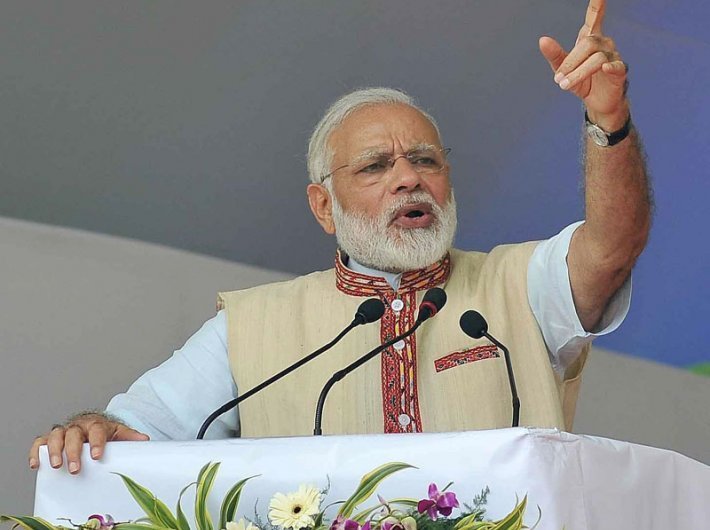Former UP chief minister ND Tiwari had an interesting anecdote about the Ram Janmabhoomi-Babri mosque issue. In 1989 when he was at the helm in Lucknow, the dispute peaked following the posturing and counter-posturing by RSS-BJP-VHP combine and the Babri Masjid Action Committee.
Rajiv Gandhi had gambled on Hindu consolidation big time by letting the lock of the disputed site open in 1986. But he was equally unwilling to let go of the Muslim constituency. His home minister Buta Singh became his chief strategist who drew a plan which goaded Rajiv to make a Hobson’s choice. A too-clever-by-half move was thus planned.
Tiwari was apparently averse to the idea of exploiting the dispute politically. But Buta Singh, ably assisted by an IPS officer of UP cadre, took Rajiv to the venerated saint of eastern UP, Deoraha Baba. As was his wont, the Baba used to perch himself atop a tree and shower his blesses by touching the forehead of the devotee with his feet. He did the same to Rajiv who asked him how he should go about this dispute. The Baba from his perch ordained, “Bachcha, ho jaane do (Child, let it happen).”
“Aur bachche ne ho jaane diya (And the child let it happen),” Tiwari once recounted, clarifying his position with a mischievous smile, in a conversation with this writer soon after his rebellion against PV Narasimha Rao before the 1996 general elections.
Perhaps no political episode in Indian history is reflective of as much collective ambivalence of Indian polity as the Ayodhya dispute. It is a saga of indiscretions by constitutional entities, the judiciary and political personalities.
Rajiv was not alone in handling this issue not in a manner expected of a prime minister. Soon VP Singh followed suit as he was quoted by Arun Shourie as having told a VHP delegation, “Arre bhai, voh masjid kahan hai, voh to Ram Lalla ka mandir hai (That is not a mosque, but Ram Lalla’s temple).” However, VP Singh’s conversation to the outside world had a secular content radically different from what he said privately. The only exception was Chandra Shekhar who in his brief stint as prime minister in 1991 made a serious attempt to resolve the issue. But Rajiv toppled him within three months of installing him as the PM.
So far as the BJP is concerned, the party has always had a consistent approach to Ayodhya. In its manifestos, the BJP’s commitment to build a Ram Mandir was an article of faith that cannot be contested. But it was easier said than done when the BJP acquired the position of power. For instance, the Ayodhya issue is still dealt with as a title suit in the court of law. Obviously, the courts are not equipped to decide on issues of faith.
During Atal Bihari Vajpayee’s term as the country’s prime minister, this dilemma came up squarely before the government. And Vajpayee’s government couldn’t do anything different except relying on the court. During 1999-2004, the NDA government encountered the worst face-off with VHP and RSS on the issue. In the BJP’s scheme of things, Ayodhya was practically relegated to the background after the demolition of the mosque on December 6, 1992.
However the verdict of a three-member bench of the Allahabad high court in 2010 tried to address the complexities of the problem in the given social context. But it raised serious questions on the legal tenability of the judgment. That’s the precise reason why the Supreme Court has started hearing the case.
It will be pertinent to bear in mind that today’s political situation is radically different from the past. For instance, Prime Minister Narendra Modi is not coy about wearing his Hindu identity on his sleeves. His unflinching commitment to the temple construction may seem in conflict with his abiding loyalty to the Indian constitution. But there are indications that he has been navigating his way through political land mines.
And one of those indications came in the form of anointing Yogi Adityanath, a serving head of a religious body, Gorakhnath Peeth, as chief minister of the country’s most populous state. Yogi belongs to a genre of religious leaders who are most vociferous in their demand for the temple at Ayodhya. Of course, Yogi is a much mellowed leader now as his constitutional responsibilities far outweigh his religious incendiarism. At the same time, it would be extremely difficult for Hindutva hardliners to find fault with Yogi.
Obviously these are indications that the Ayodhya imbroglio will be heading for a different course, probably a resolution at best, with effective political and judicial interventions in coming months. It would be a tragedy if the issue continues to fester any longer.
[A version of this article appeared on FirstPost.com]

